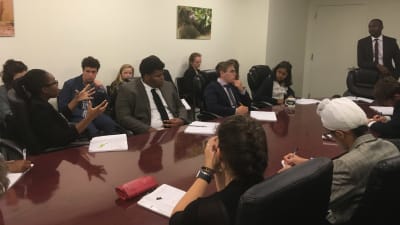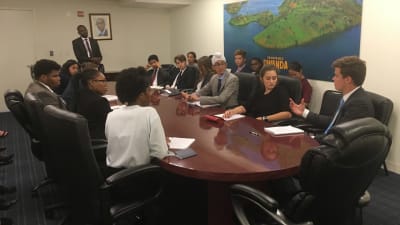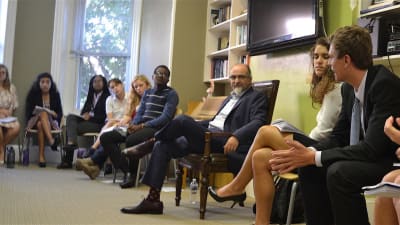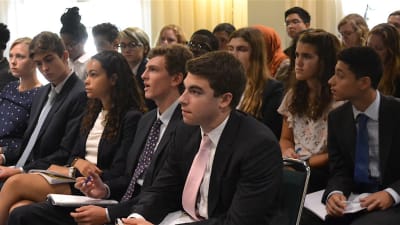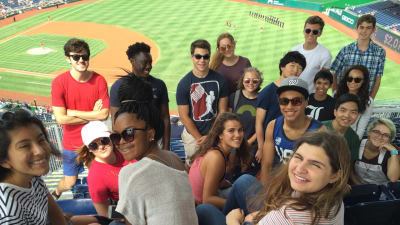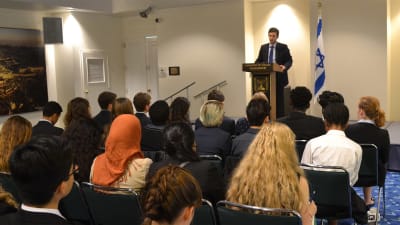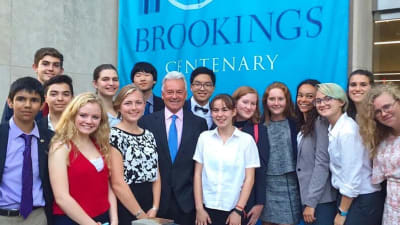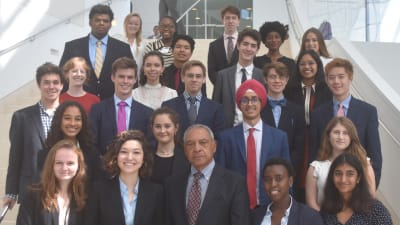Rwanda and Leadership in Crises
Watching the 2004 PBS Frontline documentary Ghosts of Rwanda is an SEGL tradition, and every SEGL graduate remembers “Ghosts of Rwanda Night.” The powerful, emotional film poses essential ethical questions: What is the best response to mass atrocity? Should American leaders prioritize American interests at all times, or is it worth risking American lives to help stave off widespread havoc? How do we prevent these events from ever occurring? These questions, and more, made up our latest case study.
On Sunday evening we began our study with Ghosts in our West dormitory common room. The discussion that followed was intense, emotive, and forward-looking, and continued long into the night.
Three of the leaders featured in the documentary are longtime SEGL guest speakers, and we met with two of them over the next few days.
Carl Wilkens is a former Adventist missionary who was the head of his church’s relief mission in Rwanda during the genocide. He was the only American to stay behind in 1994, and is most well-known for (among other acts) saving an entire orphanage from Interahamwe machetes. To SEGL graduates, he is a winner of our coveted “Golden Mug” award, which our graduates give to the speaker who has made the biggest difference in their lives. (Carl is also an honorary SEGL teacher; three times he has co-led a group of our students to Rwanda. To learn more about our 2018 trip–we will almost certainly return–visit our SEGL in Rwanda page!)
Wilkens videoconferenced from the road (he plans to visit DC–and perhaps SEGL–later this fall). He is the founder of World Outside My Shoes, a genocide prevention NGO that travels the country speaking to schools, universities, and others. The students asked him a wide range of questions–some personal, some political–and listened intently as he carefully addressed each one.
On Wednesday afternoon, we traveled to the Rwandan Embassy and met with Francis Bukuzagara, a lead diplomat there, there who shared information about Rwanda’s reconciliation attempts, the nation’s current challenges, and his personal experience of the genocide. .
Saturday brought a visit to the U.S. Holocaust Memorial Museum, where students saw evidence of modern history’s most notorious genocide, drawing comparisons and raising questions along the way.
The next week, we trekked to the United States Institute of Peace to hear from Ambassador George Moose and the USIP staff, which introduced the Institute to students. Moose was Assistant Secretary of State for African Affairs during the genocide. Moose helped students appreciate the bureaucratic decision making hurdles that stymied attempts to intervene. More important, he helped students see the legitimate reasons governments do not want to intervene in such conflicts.
(The third longtime SEGL guest speaker featured in the film is current UPS Vice President for Global Affairs Laura Lane. Although Lane no longer speaks publicly about her time in Rwanda, she gave a TED talk in 2015 that is very similar to the story she has told countless SEGL graduates. You can view that talk here.)






